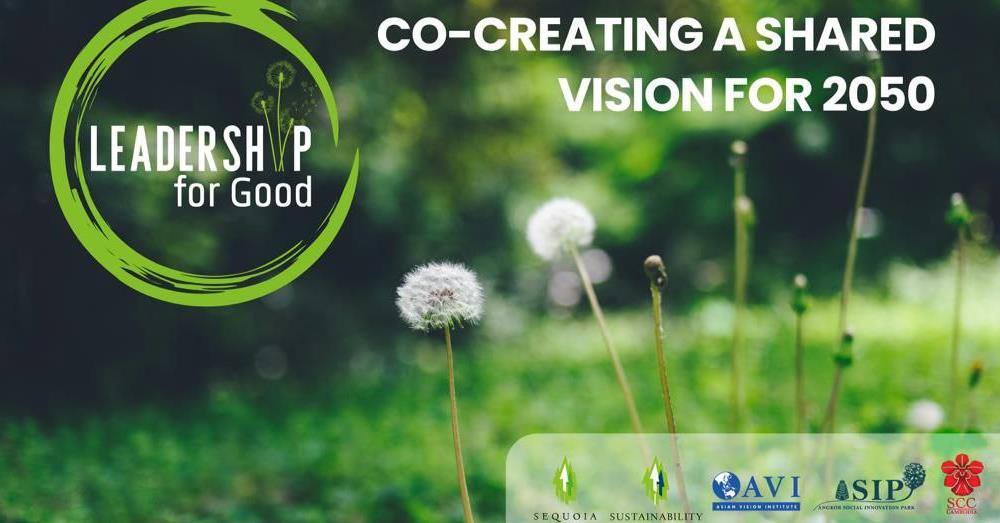Phnom Penh (FN), Nov. 6 – The world stands at a critical juncture, characterized by a deficit in political and strategic trust, a diminishing global governance framework, and a waning commitment to the rules-based international order. This challenging landscape has witnessed the proliferation of wars and conflicts, extending from the conflict in Ukraine to the turmoil in the Middle East. Additionally, security concerns loom large in Asia, with notable flashpoints in the South China Sea and on the Korean Peninsula, heightening tensions in the region.
Cambodia is currently grappling with a myriad of both internal and external challenges. External challenges include escalating geopolitical rivalries, regional conflicts, the looming specter of climate crises, all of which collectively challenge Cambodia's resilience and development prospects.
Domestically, it faces the task of achieving a more robust and resilient economic recovery in the aftermath of the COVID19 pandemic, addressing vulnerabilities in the real estate sector and financial institutions, promoting public trust in government, and combatting the growing issue of inequality.
Against this backdrop, it is imperative to infuse leadership and innovation into the public sector, nurture an environment conducive to supporting businesses, and cultivate a substantial pool of human capital.
In this connection, it is paramount to create an ecosystem that actively supports businesses, with a particular emphasis on nurturing micro, small, and medium-sized enterprises (MSMEs). These enterprises are the backbone of Cambodia's economy, and by empowering them through financial and infrastructural support, we can drive economic growth, create employment opportunities, and ultimately improve the standard of living of the Cambodian people.
Cambodia must proactively position itself ahead of the curve. We must adopt a strategic foresight approach, which involves anticipating future trends and opportunities, preparing for potential risks, and formulating innovative and transformative strategies to address them. This forward-thinking mindset is crucial to ensuring our nation's resilience and adaptability in the face of evolving global and regional dynamics.
Most importantly, what we need is leadership for the greater good. Leadership for good encompasses a fusion of four distinct leadership styles: conscious leadership, servant leadership, systems leadership, and resonant leadership.
Conscious Leadership is grounded in the belief that leadership is at the heart of every change initiative. During transformative periods, such as the one Cambodia currently experiences, where uncertainty and complexity abound, quality leadership is indispensable. It has the power to steer us through both upheaval and opportunity.
Servant leadership acts as the moral compass guiding our nation through an increasingly volatile, uncertain, complex, and ambiguous (VUCA) world. Leaders who prioritize the greater good ensure that the fruits of transformative change are accessible to all citizens, particularly the marginalized and vulnerable. They instill hope and unity, fostering a sense of shared purpose and commitment to collective progress. Ethical leadership fosters trust between the government and its people, a fundamental element for successful change initiatives.
Systems leadership skills are vital for comprehending the interconnections of issues, addressing root causes, and crafting holistic solutions with an eye on long-term sustainability. In times of transformative change, these leadership capabilities and intelligences—emotional, spiritual, and systems intelligence—jointly contribute to effective governance, social cohesion, and a sustainable path forward for the country, ensuring that no one is left behind.
Resonant leadership nurtures emotional intelligence, enabling leaders to connect with citizens, inspire hope, and rally collective efforts toward a shared vision. Resonant leadership actively involves diverse stakeholders in decision-making, tapping into the wisdom of the crowd and garnering support for transformative policies.
Engaging transformational leaders understand that ownership, learning and engagement are key enablers of high performance. Engaging leaders inspire followers to put in discretionary effort- to go the extra mile-transcending self-interest for the good of the organization and system. They are characterized by a genuine concern for the people, and they prioritize organizational health and development, understanding that employee wellbeing and growth is inextricably linked to long-term success and sustainability.
The inaugural Leadership for Good Summit, taking place on 7-8 November in Phnom Penh, invites stakeholders from the public, private, and civil sectors to reflect, contemplate, envision, and take decisive steps toward constructing a more inclusive, sustainable, and resilient Cambodia through innovative and transformative leadership.
This summit endeavors to build a community of leaders dedicated to co-creating the Cambodia of their dreams. Through constructive dialogue, we aim to unearth our collective aspirations, strengths, and challenges and pinpoint opportunities for collaborative projects that will have a transformative impact on Cambodia, moving forward.
Ultimately, the goal of the Summit is to inject wisdom, innovative ideas and action plans to realize the Cambodia Vision 2050, which envisions Cambodia to be “a vibrant society”, “a high-income and resilient economy”, “highly knowledgeable” society, and a county that “enjoys harmony, resilience, and inclusivity of physical and natural environment, and has a good balance between development and environmental conservation”.
Jacqueline Wong and Vannarith Chheang are the co-chairs of the Leadership for Good Summit.
=FRESH NEWS
